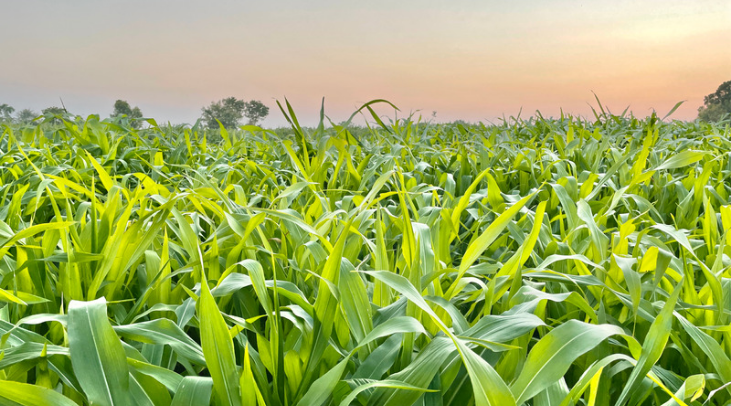Indian agriculture, the cornerstone of the national economy, is in the midst of a technological revolution. With an increasing focus on sustainability, efficiency and quality, advanced technologies such as drones, hydroponics and precision agriculture are transforming the way India produces and exports fresh produce. These innovations will not only increase productivity but also position India as a major player in the global agricultural market.
Revolutionizing Agricultural Practices
Traditional farming methods are deeply rooted in Indian culture but often struggle to cope with modern challenges such as climate change, soil erosion and the growing demand for pesticide-free products. Technologies such as hydroponics and aeroponics offer sustainable solutions:
- Hydroponics and Aeroponics: These soil-free farming methods use nutrient-rich water and a controlled environment to grow vegetables and fruits. It saves water, reduces the need for pesticides and ensures year-round production of a quality product.
- Drones: Drones are used for aerial surveillance, helping to monitor crop health, map fields and even precisely apply fertilisers and pesticides. This minimises waste and ensures higher yields.
- Smart Sensors: IoT integrated sensors monitor soil moisture, temperature and humidity in real time, helping farmers make informed decisions.
Improving exportable quality
Global markets demand fresh products that meet stringent quality standards. Indian exporters use technology to ensure compliance:
- Blockchain for transparency: Blockchain technology is being used to track the movement of products from farm to fork. This ensures traceability and authenticity, creating trust among overseas buyers.
- Cold chain technology: advanced logistics solutions, including refrigerated storage and temperature-controlled transportation, reduce post-harvest losses and preserve the freshness of produce for export.
Rise of agritech startups
India is seeing the rise of agritech startups looking to revolutionize agriculture. These startups are developing AI-powered tools, mobile applications and data analytics platforms to support farmers. Further, it creates direct selling opportunities, bypassing traditional middlemen, ensuring higher profits for farmers.
Focus on sustainability
With increasing awareness of climate change, sustainable practices are becoming essential. Renewable energy sources such as solar-powered irrigation systems are being incorporated in agriculture. Controlled use of pesticides ensures that exports meet international maximum residue levels (MRLs), promoting health and environmental safety.
Transforming fresh produce exports
Technological advancements are making India more competitive in the global fresh produce export market. For example:
- Ginger: Known for its medicinal properties, Indian ginger is gaining prominence due to improved packaging and certification practices.
- Pomegranate: Modern sorting and grading machines ensure consistent quality, increasing demand in the international market.
- Assam Lemon: This unique variety will reach global markets through improved logistics and branding.
Challenges and Future Directions
Though the future looks promising, challenges remain such as high cost of acquiring technology and lack of awareness among smallholder farmers. Government policies and subsidies, private sector-cooperative partnerships will be key to overcoming these hurdles.
Incorporating technology into Indian agriculture is not just a trend, it is a necessity. By adopting advanced solutions, India can revolutionize its farming practices, improve the quality of its exports and strengthen its position in the global market.
In this new era, the synergy between tradition and innovation will define the future of Indian agriculture, ensuring sustainability, profitability and global recognition. The future of Indian agriculture is bright and the transformation is already underway. Leverage technology for a successful future.

